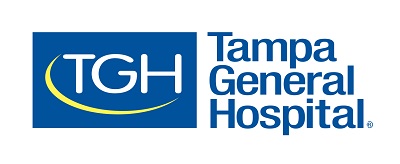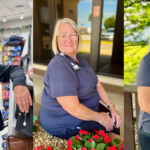 To prepare for COVID-19 patients, Memorial Healthcare System made significant changes to its operations, such as deploying an external triage, allowing non-essential employees to work from home, setting up a drive-thru testing site, as well as limiting visitors.
To prepare for COVID-19 patients, Memorial Healthcare System made significant changes to its operations, such as deploying an external triage, allowing non-essential employees to work from home, setting up a drive-thru testing site, as well as limiting visitors.
According to Dr. Thomas Macaluso, Memorial’s Chief Quality and Safety Patient Officer, each of the hospitals have added temporary structures outside of the main emergency room for more screening.
“We added triage tents outside of the main emergency room so patients with fever or other signs of a respiratory infection can be triaged through the tents,” he says. “All other patients with other types of medical emergencies that are not virus-related can present through the normal ER process.”
In addition, all staff who are potentially evaluating those patients are trained in the appropriate use of personal protective equipment.
“We’re following CDC guidelines on who needs to be tested,” explains Dr. Macaluso. “We’re really only trying to admit patients who would otherwise require hospitalizations, such as severe respiratory distress or patients who have other medical issues that would be compromised if they were infected.”
Many of its corporate employees and support services have been instructed to work from home if they have the capability to do so.
“We’re working with our IT department to make sure that they have optimal connectivity from their home to facilitate that,” says Dr. Macaluso.
Dr. Macaluso notes that Memorial has added a lot of communication on its external and internal websites to educate everyone on how to best manage this situation. “Clearly it’s fluid. We’ve been advising people that as well. But everybody’s been working really hard to stay current with CDC and Department of Health guidelines and to effectively coordinate what is necessary.”
Memorial is able to test around 400 patients per day internally with its current test reagents. They run batch testing, so tests performed in the morning are resulted in the afternoon. Tests batched in the afternoon are resulted the next day. As more test reagents become available, Dr. Macaluso expects that the number of patients tested to be over 1,000 per day.
“The current advice—for those who believe they have contracted the virus through travel or contact with somebody who tested positive, or if an individual with some underlying medical issue is getting sick—is to contact their provider,” says Dr. Macaluso. “That provider can then give them advice. If that advice means that the patient should be seen at an emergency department, the provider will notify the emergency room that they’re sending a patient.”
Memorial has also waived its fee for a telemedicine consult at www.memorialdocnow.com for patients who believe they have contracted COVID-19. (When prompted, enter the coupon code “MemorialCares”).
The health system has also been working in collaboration with the Governor’s Office to help expand its COVID-19 testing by operating a drive-thru community site for collection.
“We tested 3,350 individuals during the first five days of operation at C.B. Smith Park”,” says Dr. Macaluso. “It’s been a collaborative effort with the State of Florida, National Guard, ourselves, and numerous other agencies in South Florida.”
Memorial made some adjustments to its patient visitation policy.
“For many years, we’ve embraced 24/7 open visitation as part of our patient and family-centered approach to care,” says Dr. Macaluso. “However, because of the concerns with this pandemic, we had to adapt. Now, no visitors are allowed, unless there is a special circumstance.”
Exceptions include the spouse or significant other of a delivering mother, or one guardian with a pediatric patient. “In our nursing home, however, we instituted a strict no visitor policy because that’s an exceptionally vulnerable population,” says Dr. Macaluso.
Finally, he adds that Memorial has been focused on the disinfecting and cleaning of all of its facilities. The cafeterias are moving towards only pre-packaged foods as opposed to the typical cafeteria line.
“Our big concerns right now, and we have talked to our partners in the state and the governor’s office, are about supply shortages, personal protective equipment, intravenous fluids, and the availability of testing kits,” Dr. Macaluso says. “If that could be solved that would be a huge benefit to us and the rest of the community.”


























